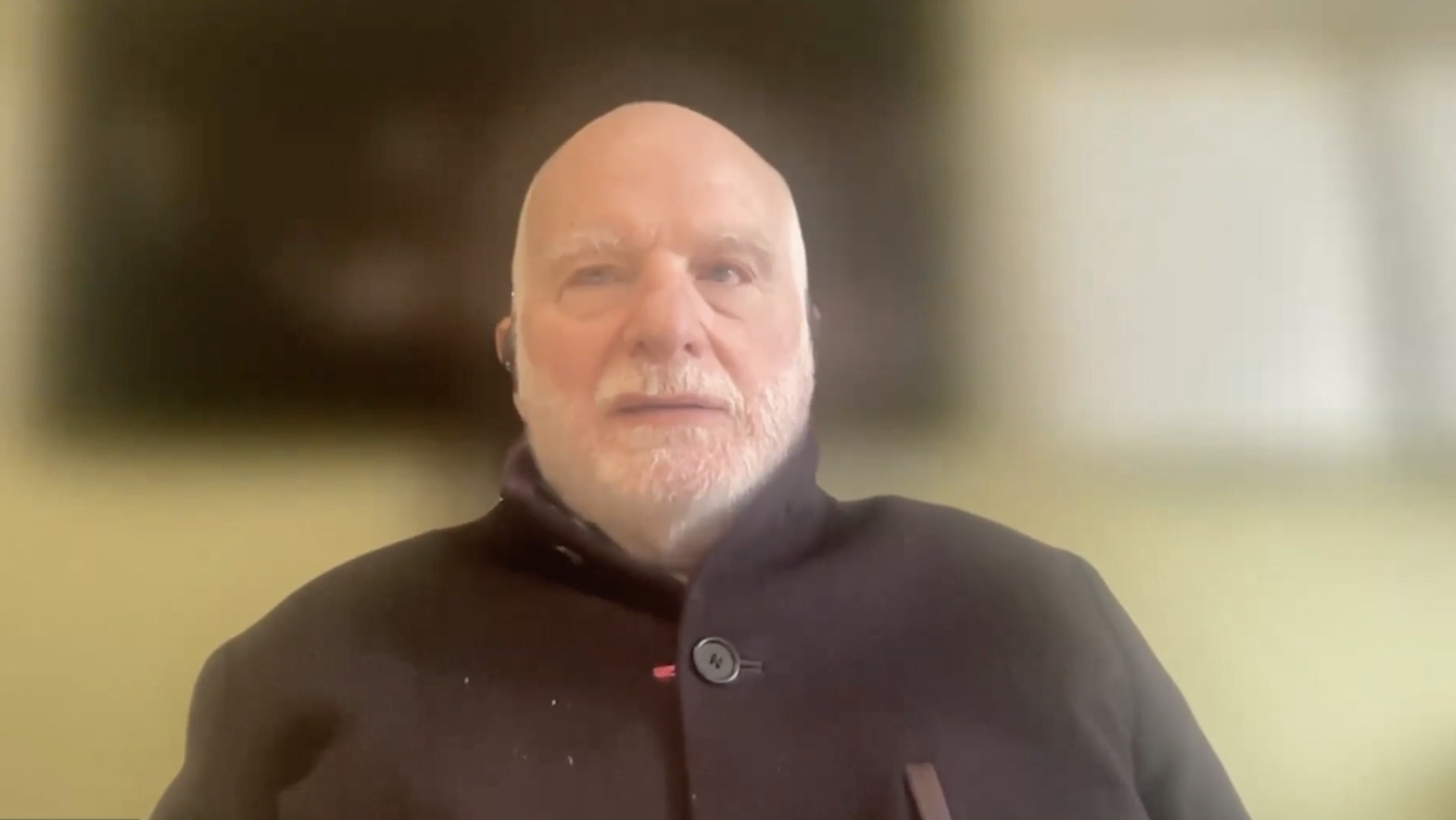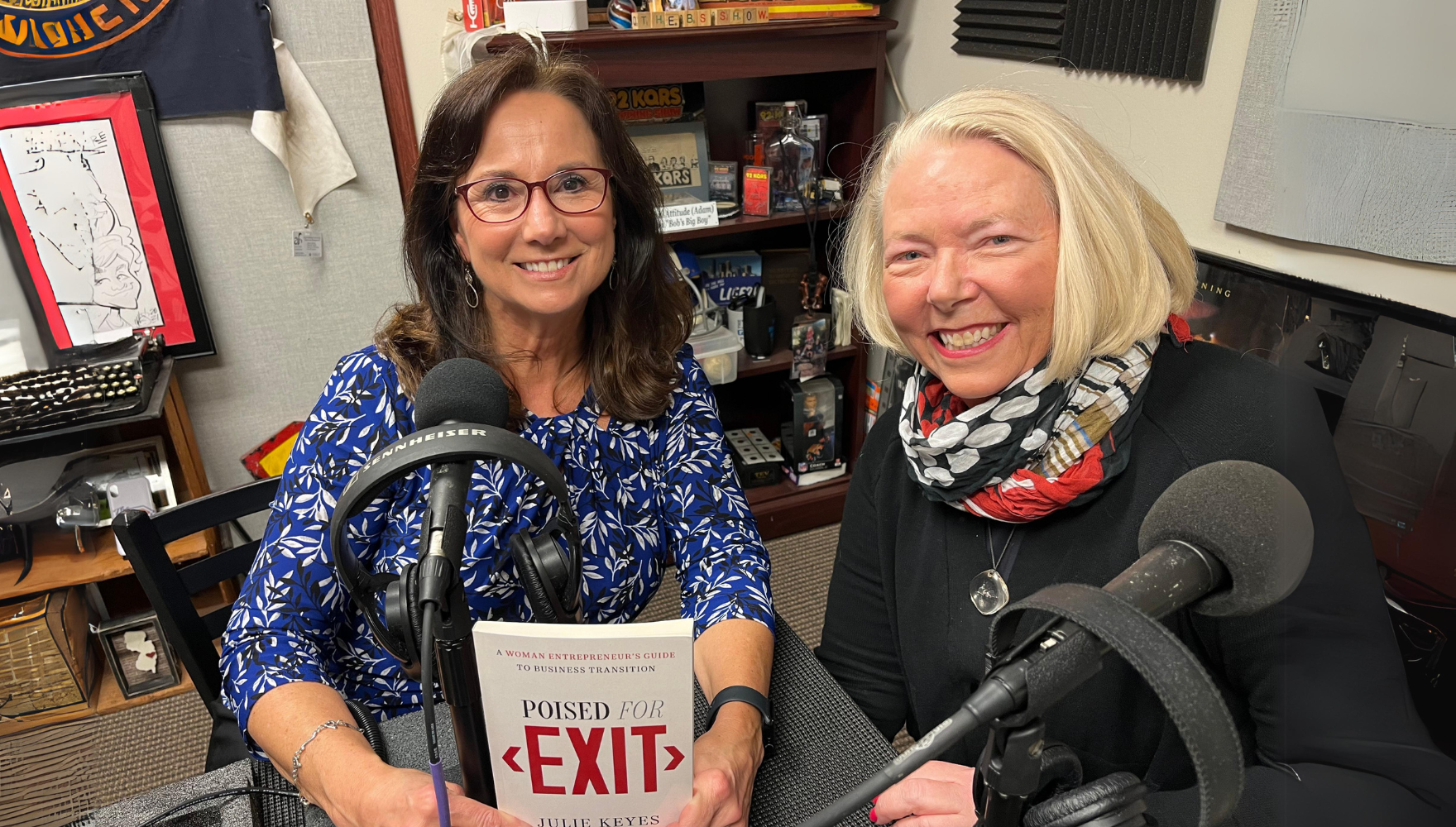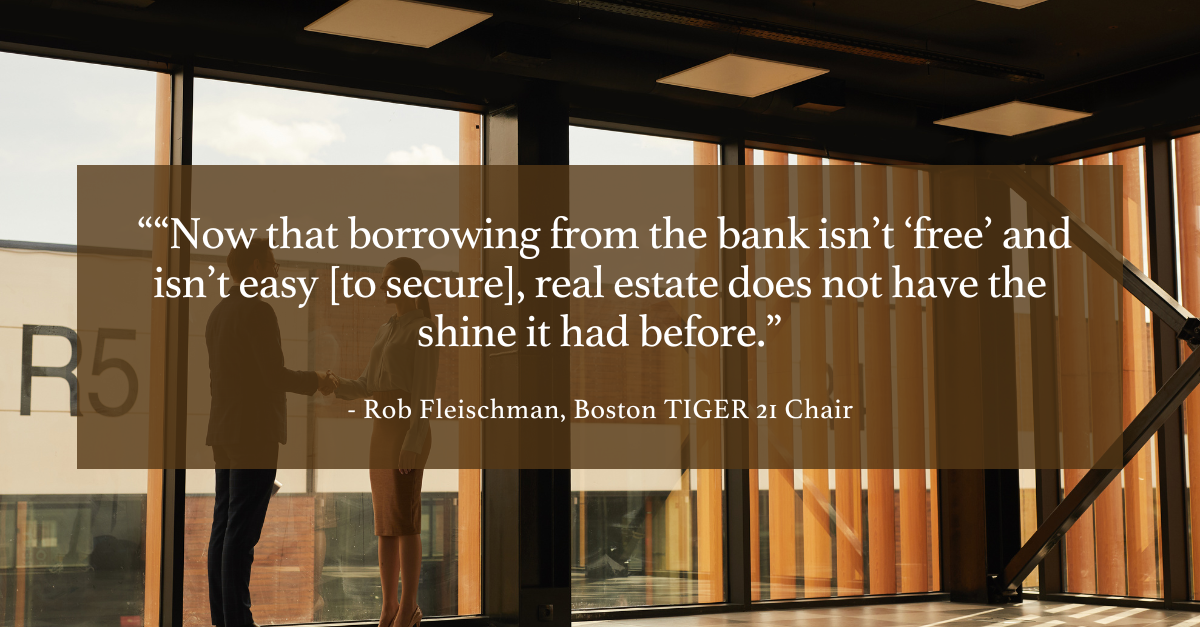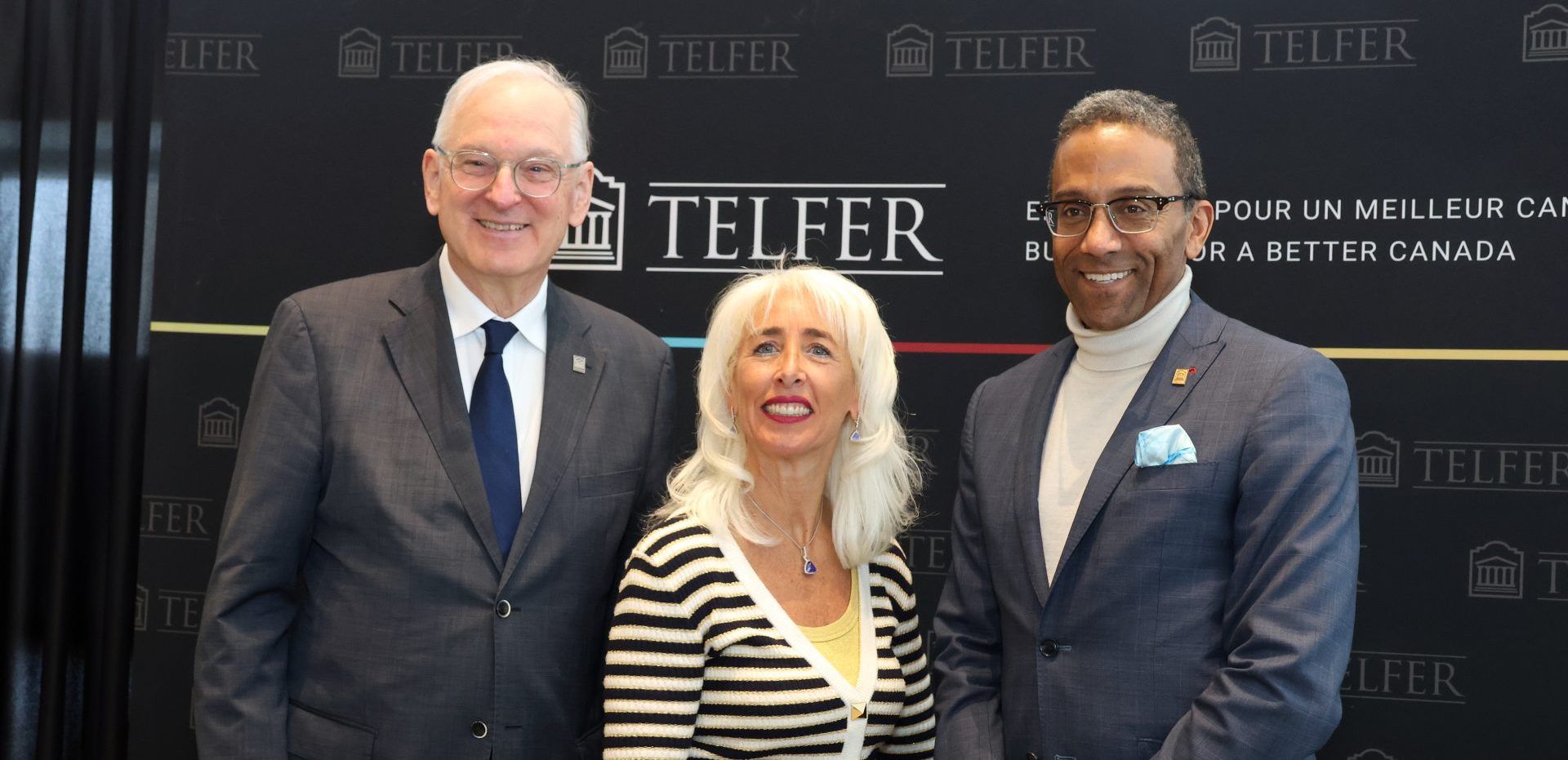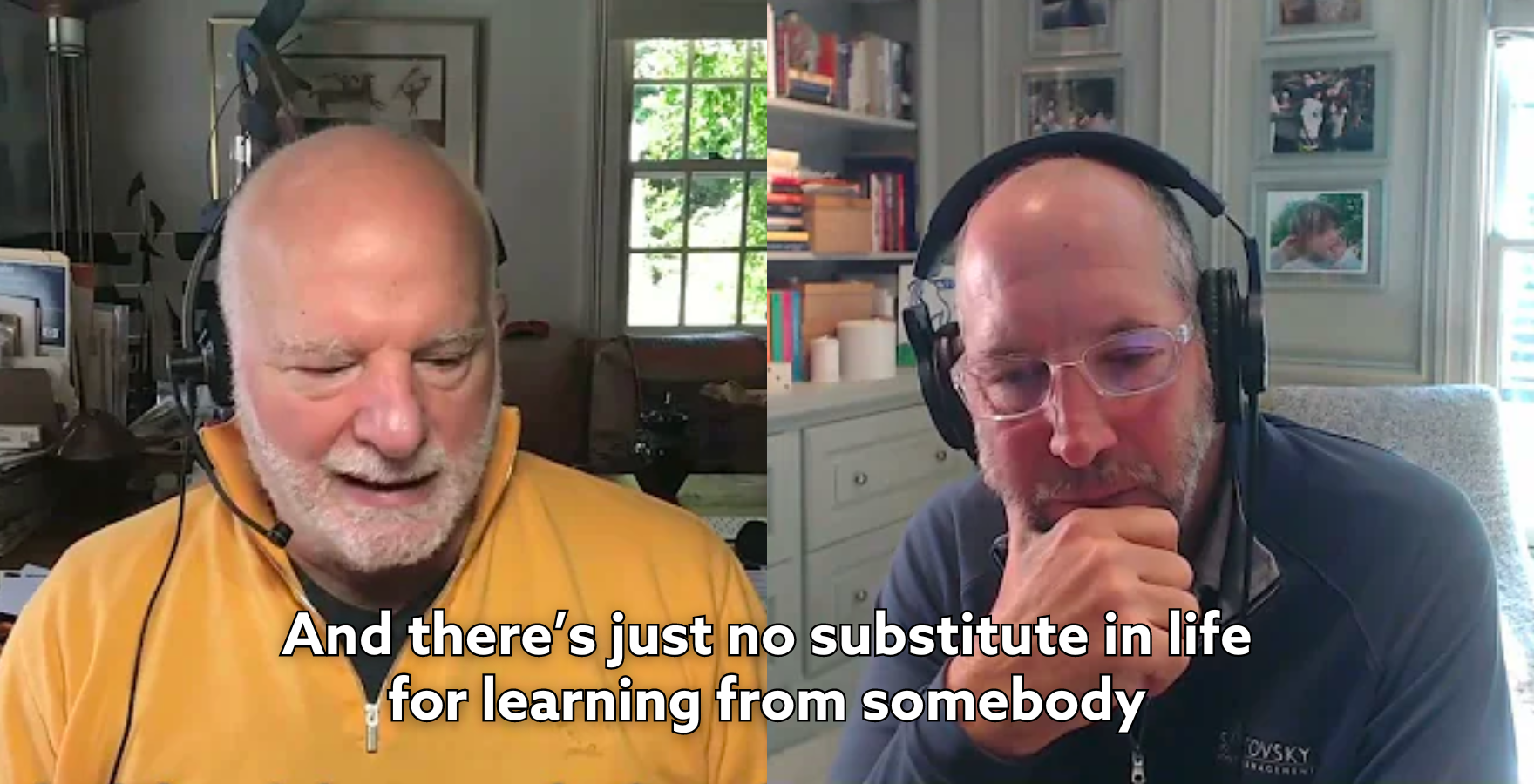MEMBERS EXPLORE INVESTMENT POSSIBILITIES AT 2014 ANNUAL CONFERENCE
TIGER 21 Members Explore Investment Possibilities at 2014 Annual Conference
Wall Street heavyweights impart their thoughts on the markets; Members share their own investment opportunities and Bitcoin gets its due
New York, NY (February 13, 2014)– Members of TIGER 21 experienced the art of possibility during their 4th Annual Members Conference. The three-day event at The Phoenician in Scottsdale, Arizona featured presentations by world-class financiers and visionaries in philanthropy, health, and lifestyle.
A theme running through the conference was embracing life’s infinite possibilities, and it was kicked-off with a presentation by the world renowned conductor of The Boston Philharmonic Orchestra,Benjamin Zander, who is co-author of the aptly named book The Art of Possibility.
The possibilities related to investments comprised an important element of the conference agenda with presentations from such luminaries asSteven Roth, Chairman and CEO ofVornado Realty Trust;Robert Arnott, Chairman ofResearch Affiliates;Jeremy Grantham, Co-Founder and Chief Investment Strategist ofGMO;David Rubenstein, Co-Founder and Co-CEO ofThe Carlyle Group;Howard Marks, Chairman ofOaktree Capital Management;Felix Zulauf, Co-CIO ofVicenda Asset Management; and,Barry Silbert, Founder & CEO ofSecondMarket.
The expertise of TIGER 21 Members was also on display and their access to certain deals showcased in a two hour session where Member-led investment opportunities were discussed. In all, 10 TIGER 21 Members detailed prospects in real estate, energy, healthcare, finance, and other sectors. “TIGER 21 Members are mostly self-made and many of them continue to remain involved in running companies and are active investors. These formal presentations were very well attended and brought together Members from different groups throughout North America. It is not surprising that many of the conversations started at the deal-pitching session continued throughout the conference,” saidMichael Sonnenfeldt, Founder and Chairman of TIGER 21.
The following are take-aways from the keynote presentations at the 2014 conference:
Robert Arnott – Research Affiliates
Arnott, who has pioneered several unconventional portfolio strategies, opened his remarks by saying asset allocation is vastly simpler than most people realize. He explained that it is a matter of error avoidance. “The worst thing as investors that we can do is chase fads, chase bubbles, chase trends well past their usefulness,” according to Arnott.
His provocative recommendation for investors is to check the one-, three- and five- year-track records of funds they are considering and give serious thought to the ones with the worst three- and five-year records – while staying well away from the ones with the best three- and five-year records.
As Arnott astutely observed, “The past is not prologue. What has gone up does not necessarily go up. But fees are prologue. What was charged last year will be charged next year. So think twice before buying the most expensive products.”
Arnott also observed that yield matters. He doesn’t advise investors to chase it, but suggests that the classic 60% stocks/40% bonds portfolio balance, which has provided a nice run over last 30 years, is now producing disappointing yields and investors need to broaden their tool kit. By this he means looking to what he calls the third pillar of investing ‚Äì diversification into markets that are lightly correlated with mainstream stocks and bonds, typically offering higher yield, or higher growth or both and are positively correlated with inflation (helping if inflation reignites). This spectrum of alternative markets includes inflation hedges like TIPS, commodities and REITS as well as emerging market stocks and bonds and high-yield bonds.
A big proponent of mean reversion, Arnott believes that now is a time to rebalance. Arnott points out that 2013 was mostly a bear market year ‚Äì it was a bull market only for people invested in US and international stocks. “If you invested in bonds, they went down. If you invested outside the mainstream, those investments went down. Anything outside of mainstream, the yields went up, returns were negative or if positive by less than the yield. This presents a marvelous trade opportunity to take stock market profits and build exposure to the third pillar of liquid alternatives.”
Jeremy Grantham – GMO
This titan of Wall Street presented by far the most bearish view of the market, yet all was not doom and gloom.
Grantham said that you must recognize that markets are incredibly inefficient because of career risk. When a bubble gets going, playing against it is bad for business and dangerous for the career of the investing professional – so most professionals will not make the trade that should be made. However, the forming and breaking of the great bubbles are the few real opportunities that institutional professional have to earn their keep. When the bubbles are forming, that is a great opportunity to decrease risk and increase returns.
Grantham related that during the tech bubble his firm witnessed a lot of money going out the door, but they made the right decisions, and profited greatly in the long-term.
On the bubble leading up to the great recession, Grantham said, “In 2007 there was great fiction put out by bankers that nobody saw the crisis coming, but almost certainly everyone we spoke to knew it was coming, they just did not know the exact timing.”
Grantham’s view from 30,000 feet is that you cannot have a bubble unless you have wall-to-wall elegant rationalizations. “Every single bubble had very smart people come out and argue that it was quite reasonable because there had been some permanent change that made the odd data irrelevant,” he said. This makes him think that we are beginning to get the pre-conditions of a bubble now.
David Rubenstein – The Carlyle Group
The private equity expert explained that as emerging markets mature, the frontier markets ‚Äì those countries with even less developed markets ‚Äì will present the best investing potential. Rubenstein noted that we’ll have a historic moment in 2014 when the Gross Domestic Product of emerging markets will surpass the GDP of the developed markets ‚Äì this includes the emerging markets of China (2nd largest economy) and Brazil (6th largest economy).
“If you are going to invest for a 5 or 10 year period of time there is no doubt that the emerging markets are going to become the dominant part of the global economy. The US will still be the greatest place to invest, because while we don’t have great growth rates we do have rule of law, transparency, great financial markets, talented people to run companies and exit opportunities. That aside, emerging markets are the place where you will see the greatest growth and number of opportunities,” said Rubenstein.
On China ‚Äì where Carlyle has 15 percent of its workforce ‚Äì Rubenstein thinks the country is experiencing a difficult transition as it grows, but in the long-term it remains a safe bet. The key to Carlyle’s success in China is that the firm is bringing people and their skills to Chinese companies and teaching the Chinese workers, which helps those companies grow. This is in contrast to companies that completely take over a Chinese business for market share.
Howard Marks – Oaktree Capital Management
Picking up on the theme of “possibilities,” Oaktree Capital Management Chairman, Howard Marks, commented, “It is very important to act and invest with a range of possibilities in mind. Rather than say that we make our own luck, a better way to think about it is that portfolio results/investing results are what happens when an existing portfolio collides with events. Investors need to put together a portfolio in part for what they think will happen in the future ‚Äì then the big question is whether those events happen. If you prepare through study and practice, work hard and bring your talents to bear, you’ll be positioned to make the most of opportunities that arise,” according to Marks.
Marks does not see any “fat pitches” on the investment horizon and thinks the US economy will continue to show moderate growth, hopefully achieving “three steps forward (instead of two) and one step back.”
Felix Zulauf – Vicenda Asset Management
Felix Zulauf, who made a name for himself making big bets in bear markets, described himself as having contrarian genes – making money on the short side in all bear markets. In his view, most of today’s money managers play only on the long side while true opportunity and risk managers should play both sides.
Zulauf sees emerging markets in down cycles as being a big theme. His biggest positions are short emerging market currencies. The most obvious play is shorting the Turkish lira, said Zulauf. He characterized Turkey as the classic macro case ‚Äì an artificially inflated boom paid for by foreign money. “It is a balance of payment crisis that will end with a much weaker currency, higher interest rates and a recession ‚Äì then it will rebalance,” according to Zulauf.
Other countries in similar situation are Russia and Brazil, stated Zulauf.
Zulauf says the credit booms and credit bubbles in many of the emerging markets and throughout virtually all of Asia are of historic proportions – much bigger than what we had in the US in 2007. He further elaborates, “The mother of all credit and real estate bubbles is China. We see now many of the signs that you see at the end of the boom years ‚Äì distress in the financial system and you don’t get the full picture because the information flow is filtered. I have been completely anti-consensus for quite some time that the world economy will not normalize but will in fact relapse into much slower growth and economic problems and this will eventually hurt our markets,” said Zulauf.
Everyone Talking Bitcoin
One investing topic that is hard to ignore these days is Bitcoin. TIGER 21 had SecondMarket founder and CEO Barry Silbert, who also helped create the Bitcoin Investment Trust, give a tutorial in the digital currency and share his views on why Bitcoin is here to stay.
Silbert believes that the regulatory clouds around Bitcoin are clearing and that the digital currency is gaining legitimacy and finding allies in Washington from across the political spectrum. He argues that Bitcoin provides an obvious benefit as a low-fee remittance tool compared with other forms of payment like credit cards or the traditional money wire services, and as a form of electronic payment for very low cost items that previously were not supported by traditional payment systems.
For TIGER 21 Members the jury is still out on Bitcoin. While its advantages as a payment form are clearly understandable, its recent run-up in value is perceived by many to be a bubble.
Shared perspectives on Philanthropy
A main-stay of the TIGER 21 Annual Conference has been a section on philanthropy. This year, an all-star cast of non-profit and foundation chief executives shared their stories in a lunch session titled “Making an Impact: Shared perspectives on Philanthropy.” The presenters included Kathy Calvin, President and CEO of the United Nation’s Foundation, Jeff Raikes, CEO of the Bill & Melinda Gates Foundation, Timothy Shriver, Chairman of the Board of the Special Olympics, and Jeffrey Walker, Vice Chairman of the United Nations Envoy’s Office for Health Finance and Malaria.
“The all-star lineup of speakers at the conference provided TIGER 21 Members with a lot of food for thought. Our Members are life-long learners and active stewards of their personal wealth. Their intellect was on display during the Q&A sessions following each panel and many of the discussions carried over into the breaks,” said Sonnenfeldt. “There is no doubt that the insights imparted during the conference have the potential to positively impact many aspects of our Members’ lives.”
About TIGER 21:TIGER 21 (The Investment Group for Enhanced Results in the 21st Century) is North America’s premier peer-to-peer learning network for high-net-worth investors. TIGER 21’s over 240 Members collectively manage $22 billion in total assets and are entrepreneurs, inventors and top executives. TIGER 21 focuses on improving investment acumen as well as exploring common issues of wealth preservation, estate planning and family dynamics beyond finance. Founded in 1999, TIGER 21 is headquartered in New York City and has groups in Atlanta, Chicago, Dallas, Los Angeles, Miami, New York, Palm Beach, San Diego, San Francisco, Seattle, Tysons Corner, VA, and Washington, DC as well as Canadian groups in Vancouver, Toronto, Calgary and Montreal. More information can be found at www.tiger21.com.
About TIGER 21
TIGER 21 is an exclusive global community of ultra-high-net-worth entrepreneurs, investors, and executives.
Explore the TIGER 21 Member Experience
